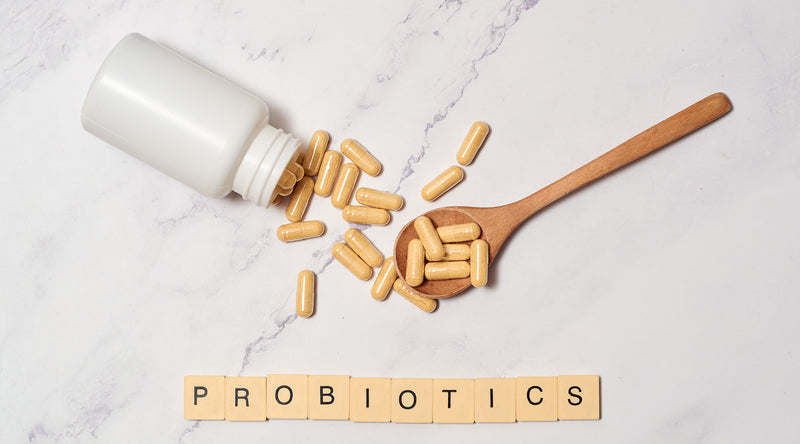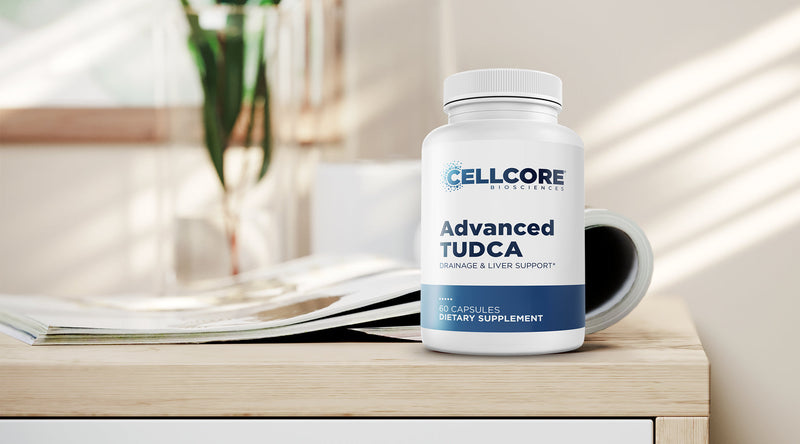Mood-boosting supplements are natural compounds that support your brain's ability to regulate emotions, manage stress, and maintain mental balance. They are nutritional support for your brain's complex chemical messaging system.
Your mood depends on delicate interactions between serotonin, dopamine, and GABA neurotransmitters. When these brain chemicals are out of balance, you may experience anxiety, depression, irritability, or chronic stress.
How mood-boosting supplements help:
• Support neurotransmitter production and function
• Reduce inflammation that affects brain health
• Help your body adapt to stress more effectively
• Provide nutrients essential for brain function
• Support healthy sleep patterns that affect mood
Why Do People Need Mood Support Supplements?
Modern Life Stressors
Today's lifestyle creates unprecedented challenges for mental wellness:
• Chronic stress: Work pressure, financial concerns, and relationship issues
• Digital overload: Constant notifications and information overwhelm
• Poor sleep quality: Blue light exposure and irregular schedules
• Nutritional deficiencies: Processed foods lack essential nutrients
• Social isolation: Reduced face-to-face connections and community support
Signs You Might Benefit from Mood Support
Your body and mind send clear signals when they need additional support:
• Persistent low mood: Feeling sad, hopeless, or emotionally flat
• Chronic anxiety: Excessive worry, racing thoughts, or panic symptoms
• Irritability: Quick anger, impatience, or emotional outbursts
• Fatigue: Mental exhaustion despite adequate sleep
• Difficulty concentrating: Brain fog, memory problems, or lack of focus
• Sleep disturbances: Trouble falling asleep or staying asleep
What Are the Top Expert-Recommended Mood-Boosting Supplements?
1. Omega-3 Fatty Acids (EPA and DHA)
Omega-3s are among the most researched mood-boosting supplements, with extensive clinical evidence supporting their benefits.
How omega-3s support mood:
• Reduce brain inflammation that contributes to depression
• Support healthy neurotransmitter function
• Improve brain cell membrane flexibility
• Help regulate stress hormone production
Research findings:
• Studies show EPA (eicosapentaenoic acid) is particularly effective for depression
• Meta-analyses demonstrate significant mood improvements in clinical trials
• Benefits are most pronounced in people with low baseline omega-3 levels
Dosage recommendations:
• For mood support: 1,000-2,000mg combined EPA/DHA daily
• Higher EPA ratio: Look for supplements with more EPA than DHA for mood benefits
• Quality matters: Choose molecularly distilled fish oil or algae-based options
2. Magnesium
Magnesium deficiency affects up to 50% of adults and affects mood regulation and stress response.
How magnesium supports mental wellness:
• Regulates GABA receptors that promote calm and relaxation
• Supports healthy cortisol levels and stress response
• Improves sleep quality, which affects mood stability
• Reduces muscle tension and physical symptoms of anxiety
Types of magnesium for mood:
• Magnesium glycinate: Best absorbed and gentle on the stomach
• Magnesium L-threonate: Crosses the blood-brain barrier effectively
• Magnesium citrate: Good absorption but may cause digestive upset
• Magnesium oxide: Poorly absorbed, not recommended for mood support
Expert-recommended dosage:
• Adults: 200-400mg daily, preferably in the evening
• Start low: Begin with 100mg and increase gradually
• With food: Take with meals to improve absorption and reduce stomach upset
3. Vitamin D3
Often called the "sunshine vitamin," vitamin D3 plays a crucial role in mood regulation and mental health.
Mood benefits of vitamin D3:
• Supports serotonin production in the brain
• Reduces inflammation linked to depression
• Helps regulate seasonal mood changes
• Supports overall brain health and cognitive function
Research evidence:
• Low vitamin D levels are strongly associated with depression
• Supplementation improves mood, especially in deficient individuals
• Particularly beneficial for seasonal affective disorder (SAD)
Dosing guidelines:
• Maintenance dose: 1,000-2,000 IU daily
• Deficiency correction: 4,000-5,000 IU daily (with medical supervision)
• Testing recommended: Check blood levels to determine optimal dose
• Take with fat: Vitamin D3 is fat-soluble and absorbs better with meals containing fat
4. Ashwagandha
This adaptogenic herb has been used for centuries and is now backed by modern stress and mood support research.
How ashwagandha works:
• Reduces cortisol levels by up to 30% in stressed individuals
• Supports healthy stress response and resilience
• May increase GABA activity for calming effects
• Helps balance thyroid function, which affects mood
Clinical research findings:
• Significantly reduces perceived stress and anxiety scores
• Improves sleep quality and energy levels
• May help with stress-related weight gain
• Shows benefits within 4-8 weeks of consistent use
Recommended dosage:
• Standardised extract: 300-600mg daily
• KSM-66 form: Most researched form with proven benefits
• Timing: Can take morning or evening, depending on individual response
• Cycling: Some experts recommend taking breaks every 3 months
5. L-Theanine
This amino acid found in green tea promotes relaxation without drowsiness, making it ideal for daytime stress management.
L-theanine's mood benefits:
• Increases alpha brain waves associated with calm alertness
• Reduces cortisol response to stress
• Enhances GABA, dopamine, and serotonin activity
• Improves focus while reducing anxiety
Research support:
• Studies show reduced anxiety within 30-60 minutes of taking
• Improves attention and cognitive performance under stress
• Enhances sleep quality without sedation
• Works synergistically with caffeine to reduce jitters
Usage recommendations:
• Acute stress: 100-200mg as needed
• Daily support: 200-400mg daily
• With caffeine: 100mg L-theanine per 100mg caffeine
• Empty stomach: Absorbs better without food
6. B-Complex Vitamins
B vitamins are essential cofactors in neurotransmitter production and energy metabolism that directly affect mood.
Key B vitamins for mood:
• B6 (Pyridoxine): Essential for serotonin and dopamine production
• B12 (Cobalamin): Supports nerve function and prevents mood-related anemia
• Folate (B9): Critical for neurotransmitter synthesis
• B1 (Thiamine): Supports nervous system function and energy production
Why B-complex is important:
• B vitamins work synergistically together
• Deficiencies are common, especially in older adults
• Stress depletes B vitamin stores rapidly
• Many medications interfere with B vitamin absorption
Dosage guidelines:
• High-potency B-complex: Look for 50-100mg of most B vitamins
• Active forms: Methylfolate and methylcobalamin are better absorbed
• Morning dosing: B vitamins can be energizing, take earlier in the day
• With food: Reduces stomach upset and improves absorption
7. Rhodiola Rosea
This adaptogenic herb helps the body adapt to stress and has specific benefits for mental fatigue and mood.
Rhodiola's mechanisms:
• Modulates stress hormone release
• Supports healthy neurotransmitter levels
• Improves cellular energy production
• Enhances mental clarity and focus under stress
Clinical evidence:
• Reduces symptoms of stress-related fatigue
• Improves mood in people with mild to moderate depression
• Enhances cognitive performance during stressful periods
• May help with burnout and emotional exhaustion
Expert recommendations:
• Standardized extract: 3% rosavins, 1% salidroside
• Dosage: 200-400mg daily on an empty stomach
• Timing: Take in the morning to avoid sleep interference
• Quality matters: Choose reputable brands with proper standardization
How Should You Choose the Right Mood-Boosting Supplement?

Identifying Your Specific Needs
For anxiety and stress:
• L-theanine for immediate calm without drowsiness
• Magnesium for physical tension and racing thoughts
• Ashwagandha for chronic stress and cortisol regulation
For low mood and depression:
• Omega-3 fatty acids for brain inflammation and neurotransmitter support
• Vitamin D3 for seasonal mood changes and serotonin production
• B-complex for energy and neurotransmitter synthesis
For mental fatigue and burnout:
• Rhodiola rosea for stress adaptation and mental clarity
• B-complex for energy metabolism and nervous system support
• Magnesium for muscle relaxation and better sleep
Quality and Safety Considerations
What to look for in mood boosting supplements:
• Third-party testing: Verification of purity and potency
• GMP certification: Good manufacturing practices compliance
• Standardized extracts: Consistent active compound levels
• No unnecessary fillers: Avoid artificial colors, flavors, and preservatives
• Proper packaging: Light-resistant containers with expiration dates
Red flags to avoid:
• Unrealistic claims or "miracle cure" marketing
• Proprietary blends that hide ingredient amounts
• Extremely low prices that suggest poor quality
• No contact information or customer service
• Lack of research backing for specific formulations
Timing and Dosage Strategies
General guidelines for mood boosting supplements:
• Start low and go slow: Begin with minimum effective doses
• Consistency matters: Take daily for at least 4-8 weeks to assess benefits
• Timing optimization: Some work better in the morning, others in the evening
• Food interactions: Some absorb better with food, others on an empty stomach
• Cycling considerations: Some herbs benefit from periodic breaks
How Long Does It Take for Mood-Boosting Supplements to Work?
Timeline Expectations
Immediate effects (within hours):
• L-theanine: Calming effects within 30-60 minutes
• Magnesium: Physical relaxation within 1-2 hours
Short-term benefits (1-2 weeks):
• B-complex: Energy and mental clarity improvements
• Vitamin D3: Initial mood stabilization (if deficient)
Medium-term changes (4-8 weeks):
• Omega-3 fatty acids: Mood regulation and emotional stability
• Ashwagandha: Stress resilience and cortisol normalization
Long-term benefits (2-3 months):
• Rhodiola: Sustained stress adaptation and mental performance
• Overall mood stability and resilience improvements
Factors Affecting Response Time
Individual variables:
• Severity of deficiencies or imbalances
• Overall health status and medication use
• Stress levels and lifestyle factors
• Genetic variations in metabolism
• Quality and dosage of supplements used
When Should You Consult a Healthcare Professional?

Severe Symptoms Requiring Medical Attention
Seek immediate professional help for:
• Thoughts of self-harm or suicide
• Severe depression that interferes with daily functioning
• Panic attacks or severe anxiety episodes
• Sudden mood changes or personality shifts
• Symptoms that worsen despite supplement use
Working with Healthcare Providers
Information to share with your doctor:
• Complete list of all supplements and medications
• Detailed symptom timeline and severity
• Family history of mental health conditions
• Recent life stressors or traumatic events
• Previous treatments and their effectiveness
Questions to ask:
• Are these supplements safe with my current medications?
• What dosages do you recommend for my situation?
• How long should I try supplements before considering other treatments?
• What warning signs should I watch for?
• When should I schedule follow-up appointments?
Conclusion
Mood-boosting supplements offer valuable support for mental wellness when chosen wisely and appropriately. The key is selecting evidence-based options that match your specific needs and combining them with healthy lifestyle practices.
Choosing the right supplements can make a big difference if you want to feel your best and naturally uplift your mood. Instead of searching everywhere, choose Be So Well to shop for the best mood-boosting supplements. They offer carefully selected, high-quality options to support your mental wellness and overall balance—so you can feel brighter, calmer, and more energized daily.
Frequently Asked Questions
Can mood boosting supplements replace antidepressant medications?
Never stop prescription medications without medical supervision. Supplements can complement medical treatment, but shouldn't replace necessary medicines for severe mental health conditions.
Are natural mood supplements safe for everyone?
While generally safer than pharmaceuticals, natural supplements can still cause side effects and interact with medications. Pregnant women, children, and people with medical conditions should consult healthcare providers.
How do I know if a mood-boosting supplement is working?
Keep a mood diary tracking symptoms, energy levels, sleep quality, and stress levels. Improvements may be gradual, so consistent tracking helps identify positive changes.
Can I take multiple mood supplements together?
Yes, but start with one at a time to assess individual effects. Some combinations work synergistically, but it's important to monitor for adverse reactions.
What's the difference between supplements and prescription mood medications?
Prescription medications are typically more potent and faster-acting but have more side effects. Supplements work more gently and support natural processes, but may take longer to show benefits.
How long should I take mood-boosting supplements?
This varies by individual needs and supplement type. Some people benefit from long-term use, while others may need them only during stressful periods. Regular evaluation with healthcare providers is recommended.
Most importantly, don't hesitate to seek professional help when needed. Supplements can be powerful allies in supporting mental wellness, but severe mental health conditions require appropriate medical care and supervision.











